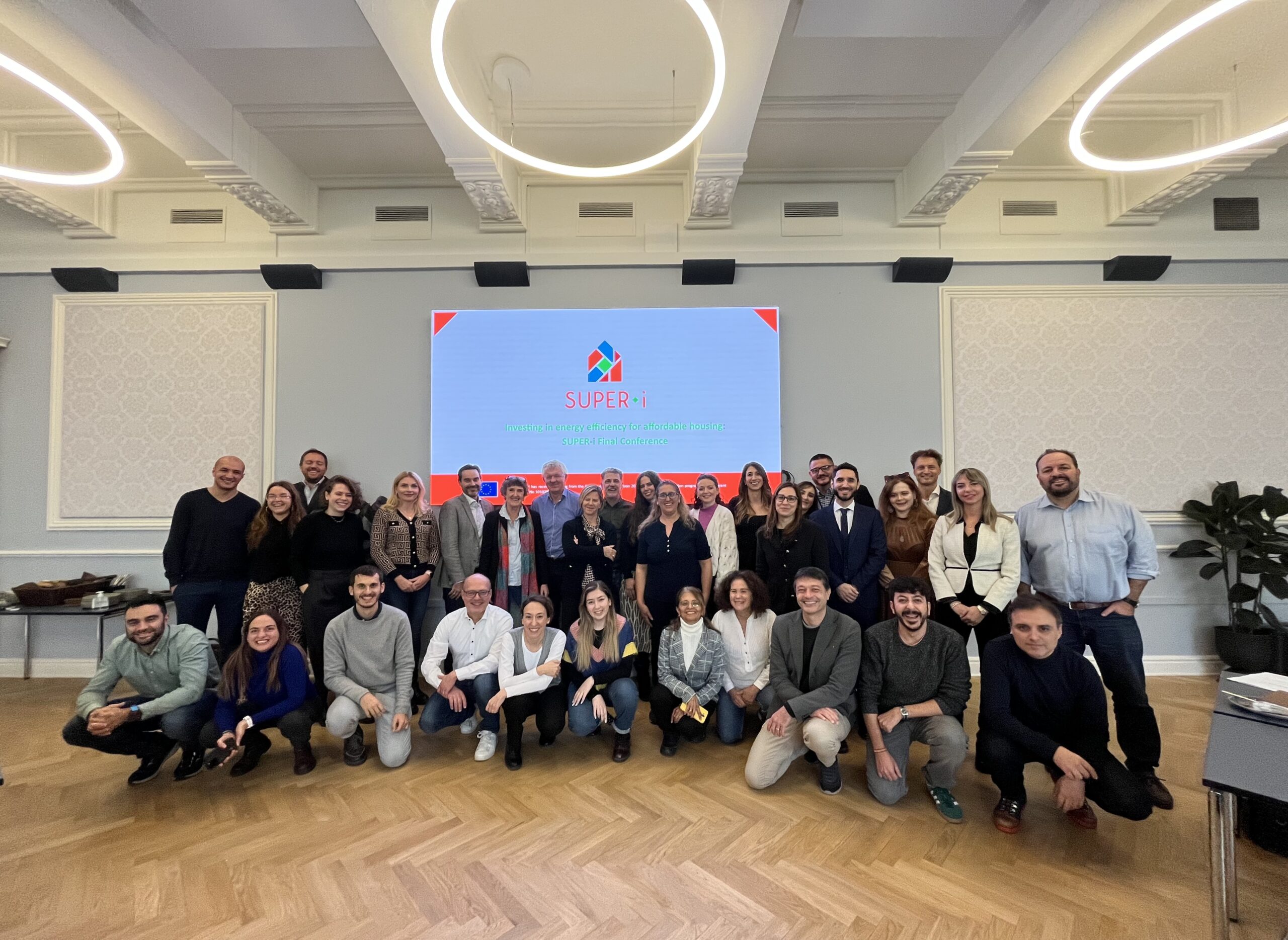Last month, stakeholders from across Europe gathered in Copenhagen for the SUPER-i project’s final event. This event highlighted innovative approaches, tangible results, and actionable insights from the project’s pilot initiatives in Denmark, Italy, and Slovenia, underscoring the transformative potential of energy efficiency in social housing.
Exploring Financial and Policy Solutions
The conference particularly addressed barriers to large-scale energy renovations in social housing. Riccardo Coletta (APRE – Agency for the Promotion of European Research) presented policy recommendations tailored to national and EU-level contexts, emphasizing the need to overcome challenges like reduced funding and bureaucratic hurdles. He also highlighted the importance of stakeholder dialogue and co-creation in fostering long-term, effective solutions.
Innovative financial approaches were also presented. Professor Paola Zerilli (University of York) introduced Public-Private Partnership contracts that balance financial risks and rewards, creating sustainable pathways for funding social housing renovations. Marco Sirugo (Tendercapital) outlined how crowdfunding can democratize financing, engaging private citizens, socially responsible investors, and local communities in supporting energy-efficient upgrades.
Noelia Pérez (CIRCE – Energy Resources and Consumption Research Centre) provided insights from the project’s pilot initiatives, where retrofits have reduced heating demand, cut emissions, and improved tenant well-being. These pilots demonstrated how tailored solutions could deliver both environmental and social benefits while aligning with EU climate goals.
ESCO 2.0: A New Era in Social Housing Renovations
Henrik Bielefeldt, Head of Project Development at SUSTAIN, showed the potential of ESCO 2.0 models to drive energy renovations in social housing. These innovative models address challenges like tenant democracy by financing renovations through energy savings. For example, a proposed installation of 46 photovoltaic systems could save approximately DKK 1.2 million annually, with a financing period of 14 years under current electricity prices. Bielefeldt also highlighted the benefits of integrating energy efficiency measures with broader renovations, such as roof replacements, to optimize costs and achieve economies of scale.
Collaboration and Innovation
The SUPER-i final conference was preceded by an internal project meeting on November 13th, where the consortium evaluated progress and outlined the steps needed to finalize the project by February 2025. Discussions focused on key achievements, including the development of a user-friendly building physics model to help housing associations assess energy retrofit scenarios and estimate savings. Financial updates highlighted advancements in Public-Private Partnership (PPP) strategies and measures to tackle energy poverty. The meeting concluded with an exploitation workshop led by ICONS, emphasizing strategies to ensure the project’s long-term impact and value for stakeholders.
A Lasting Impact
As SUPER-i nears its conclusion, the project has shown that energy efficiency in social housing is not only achievable but also essential for reducing energy poverty, cutting emissions, and improving living conditions for residents.
To learn more, download SUPER-i’s comprehensive infopacks about the pilot projects, financial models, and policy recommendations.

